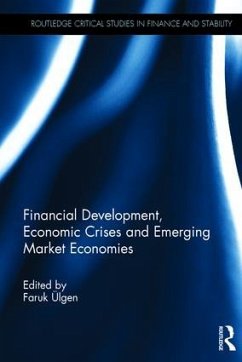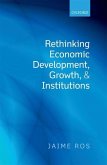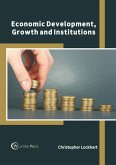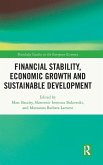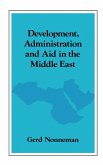Recurrent crisis in emerging markets and advanced economies in the last few decades have cast doubt on the ability of financial liberalization to meet the aims of sustainable economic growth and development. The increasing importance of financial markets and financial efficiency principles over economic decisions and policies since the 1980s laid down the conditions of the development process of emerging market economies. Drawing heavily on the tumultuous crises of the 1990s-2000s, Financial Development, Economic Crises and Emerging Market Economies argues that those experiences can shed light on such a crucial issue and lead economic theory and policy to go beyond the blindness of efficient free market doctrine to economic catastrophes. This book focuses on the weaknesses and irrelevance of financialized economic structures and refers to the implications of the ongoing global crisis with regard to the financial basics of a sustainable growth and global stability. Different critical perspectives and case studies presented in this book develop arguments against financialization and market fundamentalism, which are regarded as the main pitfalls in the process of growth and development. Chapters give sound support for alternative economic and financial policies that would be able to lead banking and financial systems to accompany collectively manageable economic development. This book is of great interest to those who study political economy, development economics and monetary economics.

